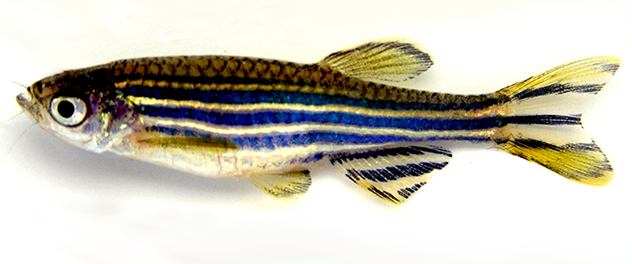 Developing new treatments for cardiac disease using zebrafish
Developing new treatments for cardiac disease using zebrafish
Dr. Xu's Zebrafish Genetics Laboratory at Mayo Clinic studies cardiac diseases using zebrafish as a vertebrate model to discover molecular mechanisms of cardiomyopathy and develop novel therapeutic strategies.
Overview
Cardiomyopathy and heart failure affect millions of Americans, resulting in billions of dollars of related health care costs annually. The mission of the Zebrafish Genetics Laboratory is to use zebrafish as an animal model to elucidate molecular mechanisms of human cardiomyopathy and to develop novel therapies.
Toward this goal, the first adult zebrafish models of human cardiomyopathies have been generated and a mutagenesis screen-based strategy has been established that enables systematic identification of genetic modifiers for cardiomyopathy. Novel therapeutic strategies are being discovered from this screen, which will be tested in different types of cardiomyopathies. By integrating efficient zebrafish models with in vitro cell culture systems and in vivo rodent models, individualized medicine for people with cardiomyopathy can be achieved.
Affiliations
Dr. Xu's Zebrafish Genetics Laboratory is affiliated with the Department of Biochemistry and Molecular Biology Research and the Department of Cardiovascular Medicine at Mayo Clinic.
The Zebrafish Genetics Laboratory research team works with these organizations to expand their studies in cardiomyopathy:
Funding
The Zebrafish Genetics Lab gratefully acknowledges the support from the following organizations:
About Dr. Xu
Dr. Xu is a professor of biochemistry and molecular biology and an associate professor of medicine at Mayo Clinic in Rochester, Minnesota. He studies cardiac diseases using zebrafish as a vertebrate model. Du. Xu's lab generated the first embryonic and adult zebrafish models for cardiomyopathies.